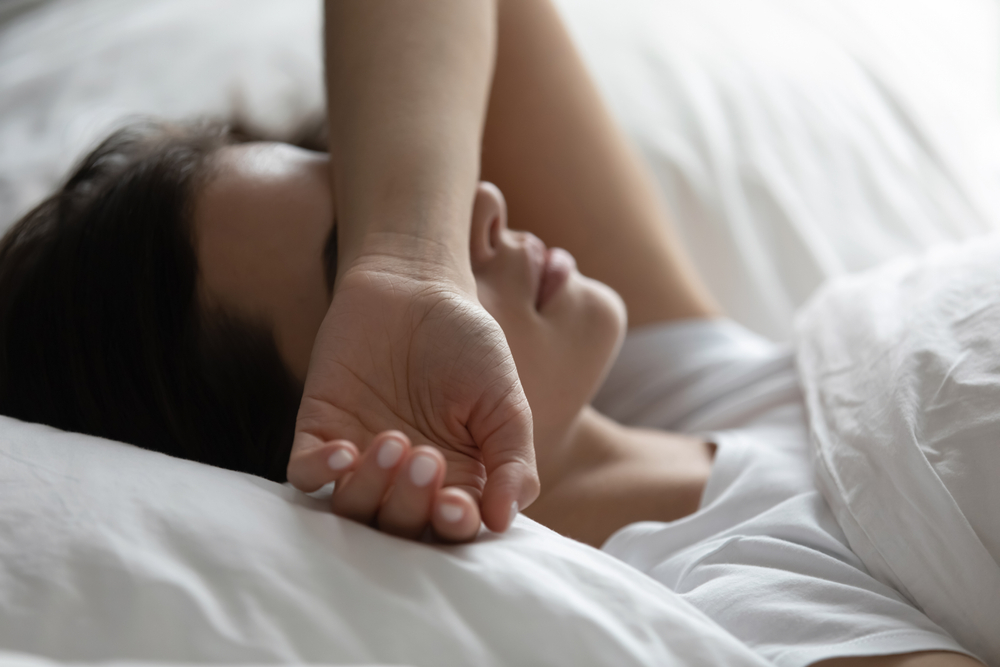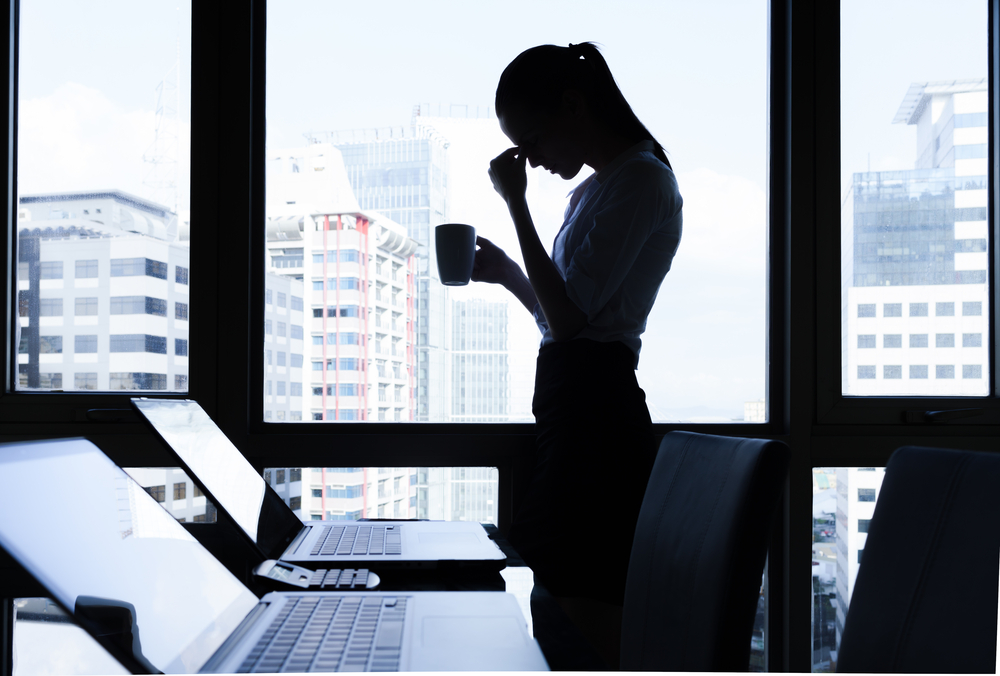
Sleep Apnea and Depression: Unlocking the Connection and Finding Relief
Sleep apnea and depression are two distinct conditions that can have a significant impact on a person’s overall well-being. However, these conditions are often interconnected, with one influencing the other in a complex manner. Leading Sacramento, CA, sleep dentist, Dr. A. Scott Grivas IIII of Sac Sleep & Breathing, is here to guide you toward a better understanding of how addressing sleep apnea can bring relief and pave the way to improved mental health.
What is Depression?
Depression is a complex mental health disorder characterized by persistent feelings of sadness, hopelessness, and a loss of interest in activities. It significantly impacts daily functioning and can manifest with physical symptoms. Genetic, biological, environmental, and psychological factors contribute to its development.
The Link Between Sleep Apnea and Depression
Sleep apnea and depression often coexist, and certain studies have found a bidirectional relationship between the two conditions. People who experience apneic episodes during sleep have a higher risk of developing depression, and individuals with depression are more likely to experience sleep apnea. The exact mechanisms behind this interaction are still being studied, but several factors contribute to this connection.


Physical Factors
Apneic episodes can worsen depression due to the physical strain it places on the body. The intermittent interruptions in breathing during sleep can lead to low oxygen levels and elevated carbon dioxide levels, which affect the brain’s functioning and overall health. These physiological changes can contribute to mood disturbances and the development or exacerbation of depression.
Chemical Factors
Sleep apnea also influences the release of certain chemicals in the brain, such as serotonin and dopamine, which play crucial roles in regulating mood and emotions. Disruptions in the normal production and release of these chemicals can contribute to depressive symptoms.
Impact on Sleep Quality
Apneic episodes disrupt the normal sleep cycle, leading to poor sleep quality and inadequate rest. Sleep deprivation and fatigue can significantly impact a person’s mental state, making them more susceptible to developing or worsening depression.
Seeking Treatment for Sleep Apnea and Depression
Recognizing and addressing both apneic sleep disturbances and depression is essential for overall well-being. Seeking professional help from experts like Dr. Grivas at Sac Sleep & Breathing is crucial for an accurate diagnosis and appropriate treatment. Effective treatment for sleep apnea not only improves sleep quality but can also have a positive impact on depressive symptoms. Similarly, managing depression through therapy, medication, or other interventions can contribute to better sleep outcomes.




Treatment Options for Sleep Apnea and Depression
Treating sleep apnea and depression requires a comprehensive approach that targets the specific symptoms of each condition. Dr. Grivas and his team at Sac Sleep & Breathing offer a range of treatment options to address sleep apnea and provide support for managing depression. Some of the common treatment modalities include:
Vivos Oral Appliance Therapy
In the realm of sleep apnea and depression, Vivos oral appliances have emerged as a promising treatment option. These custom-made devices play a vital role in keeping the airways open by repositioning the jaw and tongue during sleep. Designed for individuals with mild to moderate sleep apnea or those who struggle with CPAP therapy, Vivos oral appliances offer a comfortable and effective alternative.
These specialized appliances are recommended and fitted based on individual needs, providing a tailored solution that can significantly impact both sleep apnea management and the associated symptoms of depression.
Behavioral and Lifestyle Modifications
Certain lifestyle changes can significantly improve both apneic symptoms and depression. These may include weight management, regular exercise, healthy sleep habits, stress reduction techniques, and avoiding alcohol and sedatives. Dr. Grivas and his team can provide guidance and support in implementing these changes effectively.
Mental Health Support
Managing sleep apnea and depression involves a holistic approach that addresses both the physical and mental aspects of these conditions. Alongside sleep apnea treatment and lifestyle changes, accessing appropriate mental health support is crucial for comprehensive care. Therapy, counseling, support groups, and online resources offer valuable tools and guidance.
By seeking these resources, individuals can develop coping strategies, find community, and receive emotional support. Regular communication with healthcare professionals ensures an integrated approach to treatment. At Sac Sleep & Breathing, we prioritize your well-being and will work in tandem with your mental health professionals as needed to enhance your journey towards improved sleep and mental well-being.
Frequently Asked Questions
Are there any natural remedies or supplements that can help with both sleep apnea and depression?
While natural remedies and supplements may have some benefits in managing sleep apnea and depression, it’s crucial to consult with a healthcare professional before trying them. Some options, such as herbal supplements or relaxation techniques, may provide additional support when used alongside conventional treatments.
Does treating sleep apnea improve cognitive function in individuals with depression?
Treating sleep apnea has the potential to improve cognitive function in individuals with depression. By addressing sleep apnea-related sleep disturbances and increasing oxygen levels during sleep, treatment can lead to better cognitive performance, including improved memory, attention, and overall mental clarity.
Can sleep apnea and depression affect children and adolescents?
Yes, sleep apnea and depression can affect children and adolescents. Sleep apnea in children is often associated with enlarged tonsils or adenoids, obesity, or certain medical conditions. Both sleep apnea and depression can impact a child’s mood, behavior, and overall well-being. It’s important to seek proper evaluation and treatment for these conditions in pediatric populations.
Is there a connection between sleep apnea treatment and reduced medication use for depression?
Addressing sleep apnea through appropriate treatment has shown the potential in reducing the need for medication to manage depression. By improving sleep quality and reducing the impact of sleep apnea-related symptoms, individuals may experience an improvement in their overall well-being, potentially leading to a decrease in the reliance on depression medications. It is essential to consult with a healthcare professional to determine the best treatment approach for both conditions.
Call Sac Sleep and Breathing For Help Controlling Depression
Understanding the relationship between apneic nighttime disturbances and depression and seeking appropriate treatment is essential for improving sleep quality, managing depressive symptoms, and promoting better mental health. Dr. Grivas and the team at Sac Sleep & Breathing in Sacramento, CA can provide treatment for individuals struggling with sleep apnea to help them control depression and other comorbid symptoms.
If you’re struggling with sleep apnea and depression, contact our Sacramento office by dialing (916) 735-4060 or fill out our helpful contact form below to schedule your consultation with our sleep dentist and get your symptoms under control. We also treat patients in Sierra Oaks, Woodside Condo, and Campus Commons, CA.
